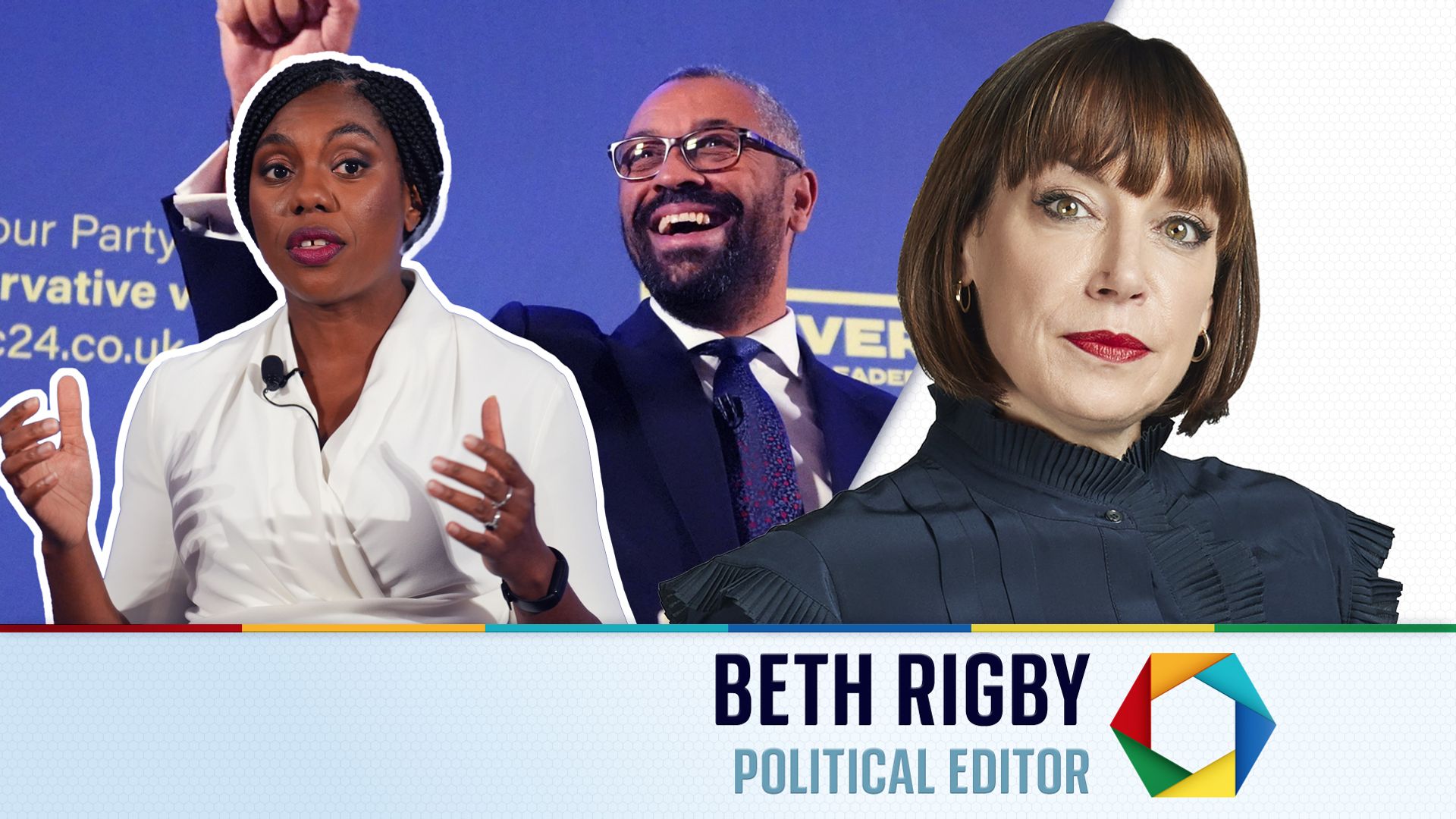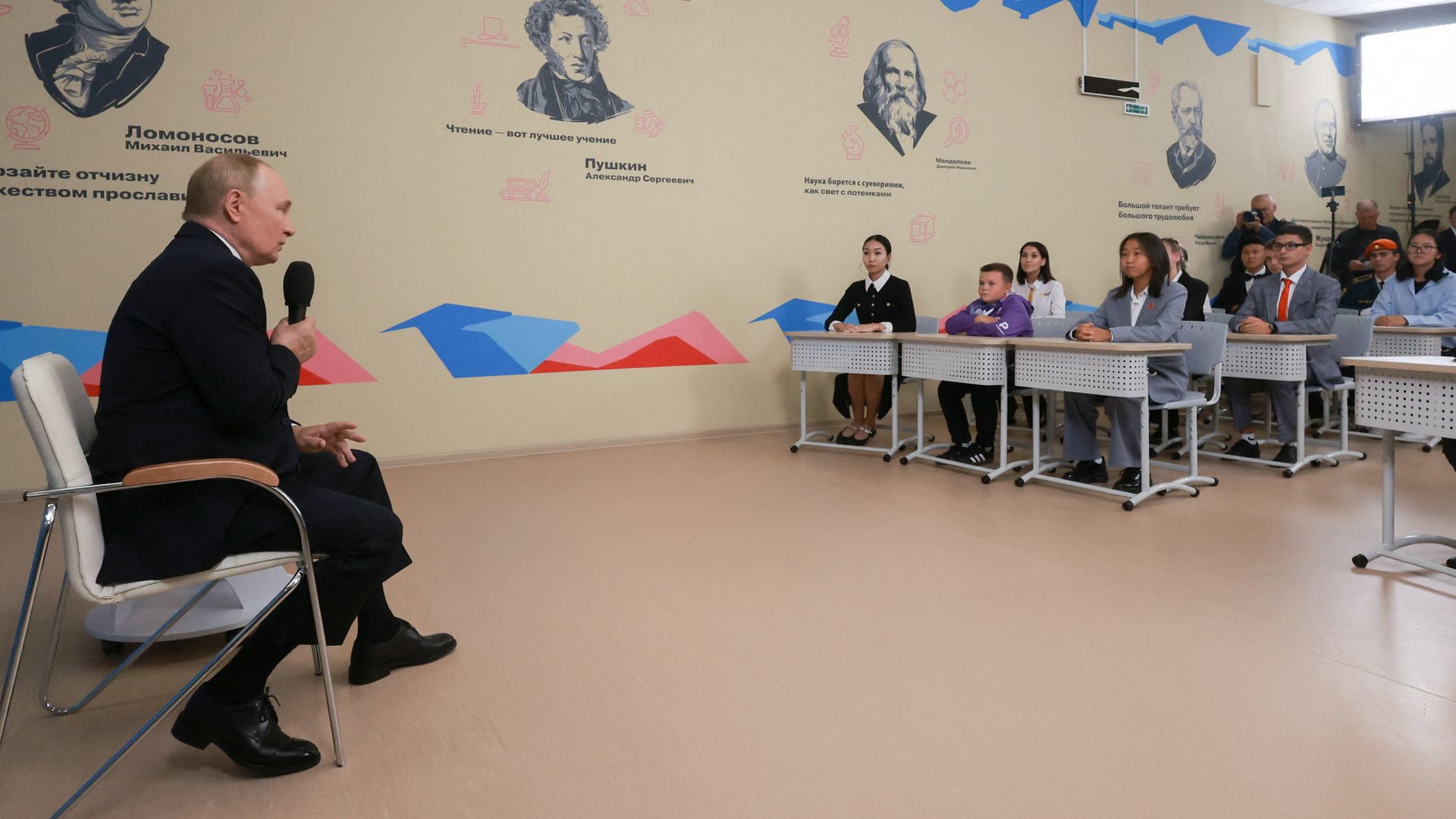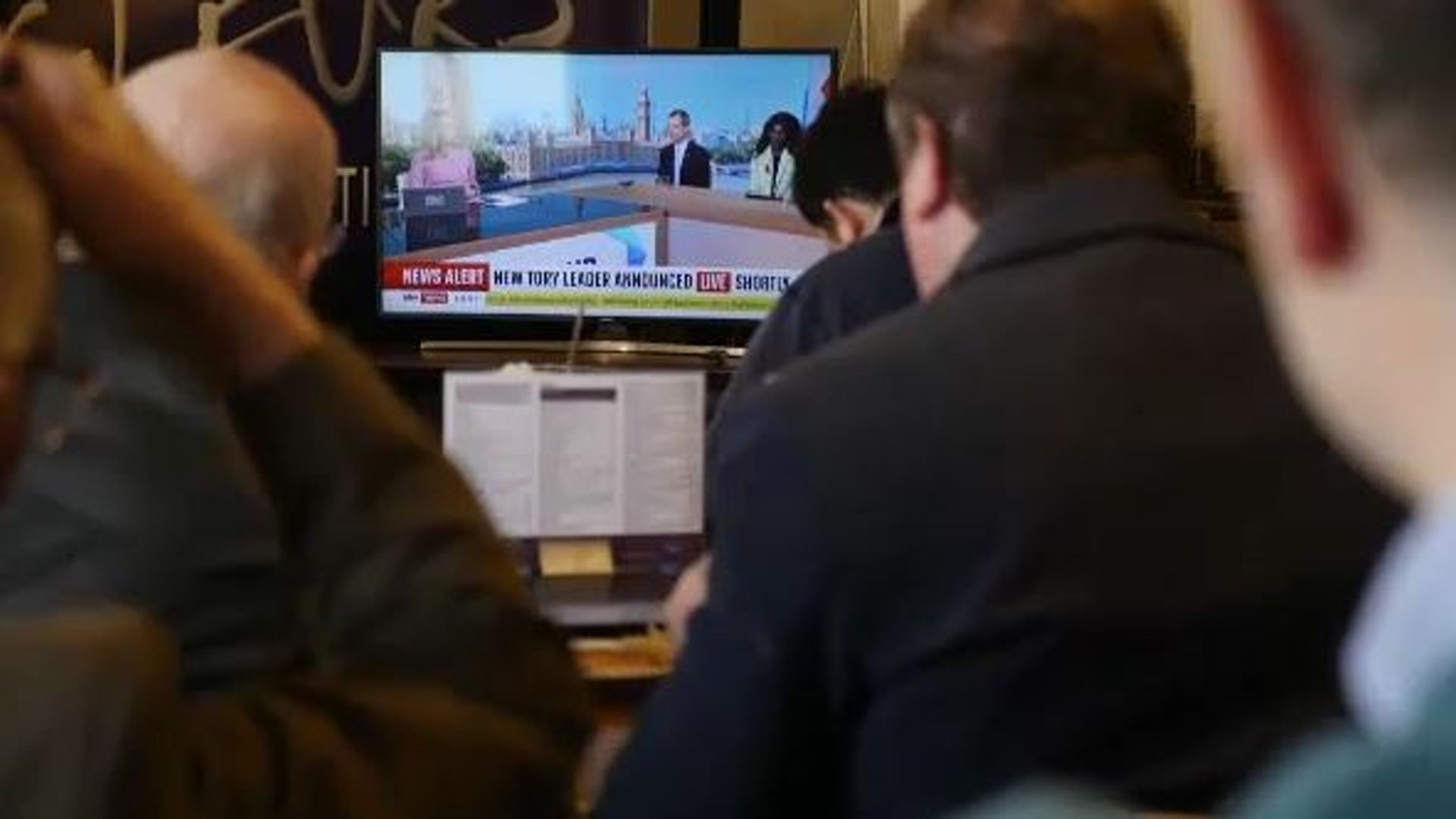A new political term, and a new reality for the Conservatives, as what’s left of the party regroups in Westminster and gets down to the business of picking a new leader.
On Monday, it was the turn of Kemi Badenoch and James Cleverly to officially launch their campaigns ahead of the first knock-out round on Wednesday.
Politics Live: End to singles council tax discount not ruled out
Their competing visions for the party are a window into how this race will shape up.
Those involved say the choice Conservative MPs and members make will determine whether the party has a shot of turning its devastating election loss into just one term out of office.
Look at the Labour working majority of 181 and the obvious answer seems to be that a rebuild is a two-term project at the very best.
But as both Badenoch and Cleverly supporters told me at their launch today, the Starmer support is wide but shallow, with the Labour leader garnering the support of 34% of voters (as opposed to 43% of the vote won by Tony Blair in 1997).
The two would-be leaders on Monday had very different pitches.
Badenoch is running on a ticket of “renewal” and used her speech to outline her principles – personal responsibility, citizenship, family, telling the truth – rather than going into policies.
Please use Chrome browser for a more accessible video player
She pledged to tell “hard truths” as she declared that her former government “talked right but governed left, sounding like Conservatives but acting like Labour”.
“Government should do fewer things, but what it does, it should do with brilliance,” she said.
“We can’t just keep having the same policy arguments from the last parliament. We lost. We are not in power… we have to focus on renewal. The renewal of our party, our politics, our thinking.”
Cleverly, meanwhile, leaned into a policy platform.
He spoke about spending 3% on more on defence, bringing back the Rwanda scheme, cutting taxes, and shrinking the state, as he pitched himself as the ultra-loyalist former cabinet minister who could unite the party and use his experience in government to get the Tories ready for power once more.
Be the first to get Breaking News
Install the Sky News app for free
Read More:
Who is running in the Conservative leadership race?
‘Pointing out how terrible Labour are’ won’t win trust, says Badenoch
At the heart of the debate, and the success or failure of the next iteration of the Conservative party, is whether MPs and members select a leader that doesn’t just win back voters lost to Reform by tacking right on immigration – (Robert Jenrick and Tom Tugenhadt are pledging to leave the ECHR in order to tackle the small boat crisis, something Cleverly argued is not necessary, and Badenoch says is not a priority), but also wins back the millions that drifted to Labour, the Lib Dems or stayed at home.
Badenoch is the bookies’ favourite, but around Westminster, seasoned political operatives say the contest is simply too hard to call.
Badenoch commanded the support of a number of high profile MPs today at her launch, such as former cabinet minister Claire Coutinho and ex-Treasury minister Laura Trott.
Please use Chrome browser for a more accessible video player
Cleverly only had four MPs at his event, which instead was filled with party members, with activists there telling me his undying loyalty to the party during difficult times had won plenty of support with the grassroots.
On Wednesday, one of the six will be eliminated from the race, with another candidate going the following week.
The remaining four will battle it out at the party conference at the end of the month before MPs whittle the four down to a final two for the party membership to choose between.
For a party badly battered in the last general election, they can at least take comfort that the man in No10 was written off when he took over from Jeremy Corbyn in 2020 as a Labour leader who would never be able to overturn Johnson’s 80-seat majority in one term.
Keep up with all the latest news from the UK and around the world by following Sky News
There are many reasons for this, from external pressures – be it the COVID-19 pandemic and war in Ukraine – to own goals and leadership failure – “Partygate”, Tory turmoil, and the chaotic premiership of Liz Truss.
But it was helped too by a leader that talked to the left during the leadership race, only to reset in the centre group and – in Starmer’s words – “put country before party” when he finally got his hands on the top job.
After learning the lessons of the election drubbing, the next Conservative leader might want to look at the Starmer playbook for clawing your party back to power too.











